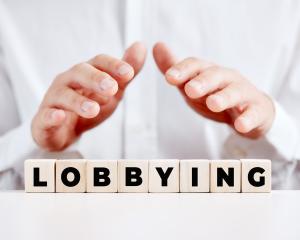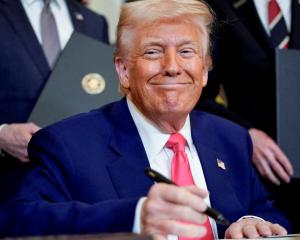The date remains undecided, but the 2020 election campaign certainly started this week with Labour’s announcement on Thursday that it will sign up to Facebook's advertisement library report.
The report, created by Facebook after the enormous controversy surrounding the use of social media in the 2016 United States presidential election, is now compulsory in several countries, but not New Zealand.
It allows the curious to see which party has placed which advertisements on its platforms, how much they paid, and which demographics the party in question has specifically targeted with that ad.
This has been a long-standing political campaigning tactic; the Cambridge Analytica scandal over misappropriation of digital assets was caused in part by that firm using such targeted digital attacks covertly in more than 60 elections, and led to Facebook’s creation of its reporting tool.
In New Zealand the Green Party was an early adopter, signing up in October last year. Act has also agreed to use it; leader David Seymour’s page is already set up and the party page will soon follow suit.
National is "looking at it", but Labour hopes its announcement will spur the main opposition party in to action. Labour’s pledge was forward-looking to the election but the party also had events of last year firmly in mind.
In 2019 National ran a series of cheeky and very effective Facebook ads which targeted Labour and the Greens, but in the process fell foul of the Advertising Standards Authority which ruled two were misleading — a finding National has appealed.
Tensions rose further with a stand-off between National and Speaker Trevor Mallard over how the party had used footage of Labour MPs speaking in Parliament within those advertisements.
Those sensitivities demonstrate both that the importance of social media as an electoral battleground is ever increasing, and that National is the slickest operator in that sphere.
Labour watched social media’s potentially decisive influence on Australia’s election closely — former young Nats Sean Topham and Ben Guerin masterminded a series of digital attacks credited with propelling Scott Morrison to his unexpected victory. Topham Guerin was then commissioned by Britain’s Conservative Party for its election campaign, where it again outplayed the opposing media team.
There is every likelihood they will be players in New Zealand’s election, and Labour will be keen to clamp down on any on-line shenanigans as early as possible. This may be a forlorn hope, as the Facebook tool was compulsory for all parties in the British election, so Topham Guerin is well acquainted with how to comply with it.
Also, knowing who paid for what and who they are targeting is one thing, but not everyone will seek that information out and few may care.
Lastly — and most importantly — while Jacinda Ardern hoped Facebook’s tool would help ensure a "relentlessly positive, factual, and robust campaign", Facebook explicitly said when it launched the tool that it would not fact check the content of advertisements.
Hence, any and all parties can still as make as many ambiguous, dubious or just plain wrong statements on Facebook as they like — viewer discretion is advised. What the governing parties in particular also need to grasp is that no online auditing tool in the world is going to help them if their social media presence does not match the professionalism National has already shown in this sphere.
Following a series of National attack ads last year which targeted Green MP Julie Anne Genter, the Greens themselves responded with a tone deaf attack on Simon Bridges. The Greens ended up apologising for mocking Mr Bridges’ accent, and in doing so allowed National to claim the moral high ground and garner itself even more free publicity in the process.
Last year, while discussing a remake of a famous scene from the film Love Actually into a wildly successful advertisement for the Conservatives, Mr Guerin made this telling point about social media: that the most compelling content is creative.
While it will be good to know who paid for that idea and who they hope to influence, that will in no way curb the influence of the right ad with the right message at the right time ... or the wrong ad, for that matter.












